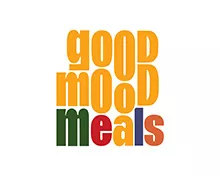General information
RDP Priority
- P3. Food chain and risk management
RDP Focus Area
- 3A: Agri-food chain integration & quality
RDP Measure
- M04: Investments in physical assets
Beneficiary type
- Small-Micro Enterprise
Summary
The Latvian company “Roga-Agro” produced distinctive, traditional rye bread for three decades, but when the economic viability of bread production diminished, the company embarked on a strategic shift. Recognising a market opportunity for lyophilised (freeze-dried) meals, the owner decided to take advantage of this opportunity, and invest. With the support of EAFRD, all the essential equipment for freeze-dried food production was acquired, and the existing production facilities renovated to suit the new processes. The initiative was supported by data-driven decision-making and the use of insights gained from industry experts. This resulted in a successful production process, and the development of over 20 preservative-free recipes. The technology employed ensures a sterile, low-humidity environment, packaged in aluminium for extended shelf life. Notably, the company witnessed increased production turnout, impacting positively on its financial performance. The project investment confirmed that success is achievable when meeting market demands through innovation and informed decision-making.
Results
- The project investment in essential equipment enabled the company to produce lyophilised meals free from preservatives. In addition, the “Good Mood Meals” brand was created.
- The company has experienced a sizeable increase in production, accompanied by positive financial returns.
- The positive outcomes highlight the project's success in introducing innovative processes and products that align well with market demands while contributing to the overall success and sustainability of the business.

Promoter
Roga-Agro
Funding
- Total budget: 284 221 (EUR)
- EAFRD: 96 635 (EUR)
- National/Regional: 45 475 (EUR)
- Private/own: 142 111 (EUR)
Ressourcen
Context
For almost thirty years, the company “Roga-Agro”, based in the municipality of Salaspils in Latvia, has been producing distinctive rye bread based on traditional Latvian recipes. Over recent years, the economic viability of bread production diminished, and the decision was made to cease bread production. However, it felt important to preserve the unique recipe, and to achieve this, the company transferred this part of the business, along with the recipe, to another Latvian entrepreneur. This prompted the owner to explore alternative business avenues: he therefore attended several international exhibitions, seeking innovative ideas that could lead to a more lucrative endeavour for the company.
Amidst his pursuit of new business concepts, the owner conducted extensive market research, leading to collaborative discussions with food technology specialists. The exploration resulted in the decision to venture into producing lyophilised (freeze-dried) meals. This strategic shift was complementary to the company's experience supplying food supplements to the armed forces. Based on the data from the latter's specific dietary requirements, the owner recognised the prospects for development. He identified a growing demand for such specialised food products, and the potential to expand into broader markets.
However, the market supply in this sector is limited, which can be attributed to the intricate technology involved and the substantial initial investment needed to acquire the necessary equipment.
Objectives
The primary project objective was to enhance the company's overall development and revenue generation by creating exportable products. For the company, this entailed the development of a new product line: lyophilised meals. The company aimed to acquire the necessary resources and capabilities to excel in this innovative venture, thereby expanding its market presence and contributing to sustained growth.
Activities
Activities implemented by the company included:
- Procuring freeze-drying equipment using CAP investment support. This included the purchase of two two-tonne capacity sublimators, a shock compressor, convection ovens, air dryers, and various cutting / shredding equipment.
Further acquisitions, via separate non-CAP funded investments, included a chopper, tables, and the renovation of a dedicated facility in line with industry standards. A successful ERDF application also secured relevant funding support for the purchase of over 20 distinct recipes for the new food products.
Main results
- The project investment in essential equipment enabled the company to produce lyophilised meals free from preservatives. In addition, the “Good Mood Meals” brand was created.
- The project resulted in a significant leverage of advanced technology into the business processes whereby the preservation method ensures sterile conditions, with a minimal humidity level of just one percent. The sole additive employed is an oxygen-absorbent material. The meal concept is based on freeze-drying, using a process in which water is sublimated by directly converting it from ice to vapor, skipping the liquid state, and then absorbing the water from the dry layer. In this way, up to 97% of the nutritional value of the meal is preserved, and a shelf life of four years is ensured. The packaging is made up of aluminium, which eliminates the need for replacement during meal preparation. By simply adding water the meal is reconstituted to a palatable, cooked quality, making it highly suitable for military personnel or individuals with specific dietary requirements.
- The company has experienced a substantial increase in production, accompanied by positive financial returns.
- The positive outcomes highlight the project's success in introducing innovative processes and products that align well with market demand, while contributing to the overall success and sustainability of the business.
Key lessons
- Data-driven decision-making: Ensure that data acquisition is prioritised, and employ analytical methodologies when making strategic decisions. Rely on empirical insights rather than subjective optimism. This will ensure a more pragmatic and informed approach to business choices.
- Leveraging experiential knowledge: Recognise that drawing from the experiences of others is a valuable resource. Engaging in discussions with industry experts and learning from their insights and past mistakes provides invaluable perspectives. This will help to mitigate risks and enhance decision-making.
- The comprehensive approach of using various innovation investments from different sources effectively positioned the company to meet market demand, and achieve high-quality standards in the production of lyophilised meals.
